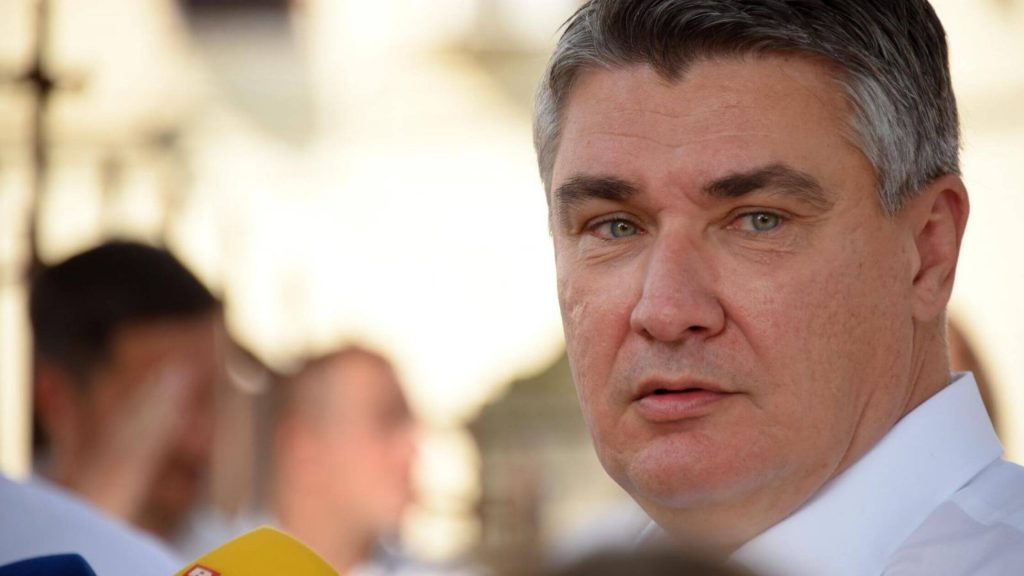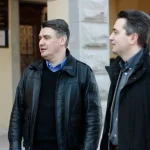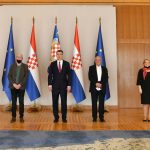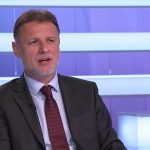Speaking to the press, Milanović said “all big states are potential monsters” and “should be taken seriously. Their potential to cause damage should also be taken seriously.”
“Today it’s Putin, tomorrow it will be someone else. One should always take account of that and understand that Russia is not Serbia. Russia is not even France, but much bigger and more different than us,” Milanović said.
In Russia, “it’s simply darker, it’s not democratic and the rules of life are different,” he said, adding, “We must see to it that we protect out way of life.”
He reiterated that Ukraine should not join NATO, saying this military alliance “must be an exclusive club, inviting only the best.”
“It’s up to us to assess where we go, who we include and, most importantly, how much it can cost us and how much it can cost small Croatia and its small army.”
As for the deployment of Croatian troops in NATO countries, Milanović said it would be optimal if they were deployed in Hungary, and that he felt the conflict spreading to NATO member states “is not even remotely possible.”
Milanović said he stood in solidarity with Ukraine but that he did not want the war there to divert the focus from the necessary electoral reforms in Bosnia and Herzegovina so that Croats can elect their representatives.
“I sympathise with Ukraine, but this other thing concerns our vital interests. I expect solidarity there, too. There will be no shooting, there will be no war, there will be no killing, but there will be rude obstruction.”
“I don’t want that focus to be lost because there is no time,” he said, referring to the fact that BiH should hold general elections towards the end of the year.
No danger of Ukraine crisis spilling over to the Balkans
Croatian Prime Minister Andrej Plenković has said that other “regional hegemonists” could use Putin’s aggression as an excuse for their own aggressive moves, which some have understood as a reference to Serbia.
Milanović said that Serbia’s leadership, which has not yet condemned Russia’s aggression against Ukraine, was “on pins and needles” and “waiting to see what will happen.”
He said Belgrade did not have the capacity for aggressive action. “What will it attack, Kosovo?… Such things should be explained. Who is being referred to, (Bosnian Serb leader Milorad) Dodik? With what weapons, what ammunition, what money? With whose logistical support?”
“Russian planes can’t fly over NATO member states’ territories, they can’t even come to this region across Bulgaria and Romania. Such things unnecessarily cause tensions and disturb people,” Milanović said.
According to him, Serbian President Aleksandar Vučić is in a difficult situation due to “the burden… of the wars in the Balkans” and cannot recognise the pro-Russian separatist republics in east Ukraine because that would justify the recognition of Kosovo.
Milanović said the EU was treating Albania, North Macedonia and Montenegro irresponsibly, creating “illusions, that is delusions, that something will happen.” “If we will lie to them, then it’s better that we don’t promise anyone anything,” he added.
He said Georgia’s European perspective was an “adventurist policy” because Georgia “must have good relations with Russia, regardless of who is in power.”











